How the DC Injustice comic books surprised everyone - including Tom Taylor and DC
Looking back at the Injustice comic books with writer Tom Taylor, just as he is possibly looking forward
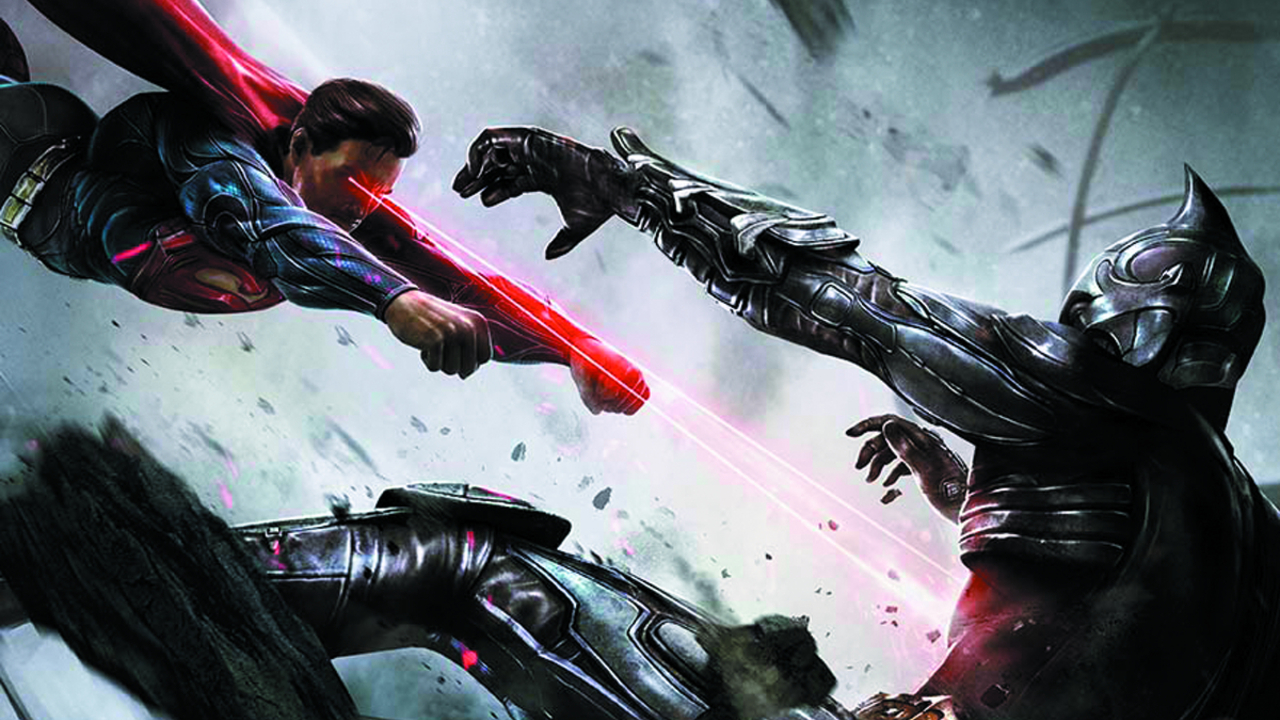
Between his current DCeased series at DC - two of them, with Dead Planet and the digital-first Hope at World's End - and the upcoming Dark Age at Marvel, Tom Taylor is the go-to writer for any story where your favorite heroes face overwhelming, apocalyptic threats… and lose. This shouldn't come as any surprise for anyone who read Injustice: Gods Among Us, the comic-book tie-in to the video game of the same name, which Taylor wrote for three years, and then returned to for the 2018 follow-up Injustice 2.
Centering around the growing war between Superman and Batman, each leading a team of superheroes (and, eventually, villains) as they struggle to save the world in very different ways - spoiler, one of them ends up leaning heavily towards despotism - Injustice showed the DC Universe gone very wrong without losing the feeling that these were, indeed, the same heroes that fans had been reading for years. No mean feat, and a sign of Taylor's unfaltering command over the story he was telling.
With Taylor seemingly teasing a return to Injustice on social media, it's a good time to talk to him about his time on the series: How it started, the high points, and what he regrets in retrospect.
Newsarama: Tom, let's start at the beginning: How did you come to be involved with Injustice in the first place? You'd done some work for DC's west coast offices before this - The Authority, DC Universe Legends - was this simply the result of being in the right place at the right time?
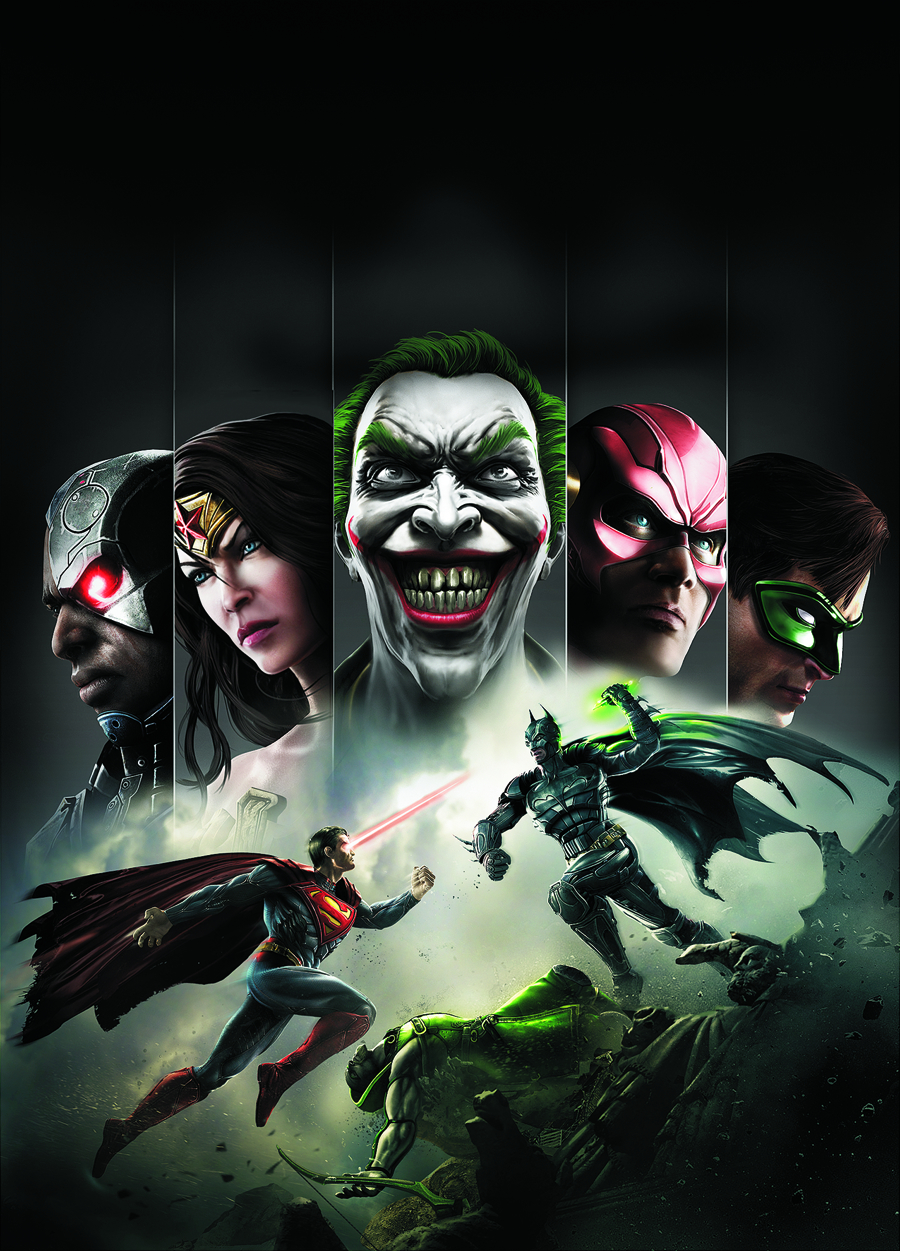
Tom Taylor: In a way, yes. I'd been writing Star Wars comics for a while when I was invited out to the Wildstorm offices in La Jolla with my friend, Colin Wilson. I was sitting in editor Ben Abernathy's office, and I told him I really wanted to get a foot in the door at Wildstorm. In response to this, he pointed out I was already sitting on his couch. I still didn't really believe this Australian was going to get a gig writing for Wildstorm so, when Ben told me I could take any hardcover or trade paperback from the office, I super professionally filled an entire comic con bag full of books to the point of breaking before I left. I figured I'd done pretty well.
A while later Ben reached out to ask if I wanted to be the writer of The Authority, which blew my mind. Jim Chadwick became my editor on that book and we all got along really well and told some very big stories. After Wildstorm sadly closed, they offered me a two-issue fill-in on DC Universe Legends - a game tie-in. Bruno Redondo and I used that to tell a massive story of a three-way war between the Green Lanterns, the Sinestro Corps, and Brainiac. It was high stakes stuff, full of emotion and humor and drama and sacrifice.
Those two issues were really the template for Injustice. What we created wasn't a simple 'game tie-in.' It was the best story we could create with the characters we love.
Get the best comic news, insights, opinions, analysis and more!
I think it was that story that led to them approaching me to write another game tie-in, Injustice. Again, there was no way I was just seeing this as a tie-in product. I was going to tell the best story I could with the characters I love. It worked out pretty well. I was originally hired to write 15 chapters. By the end of Injustice 2, I'd written 150.
Nrama: You've spoken before about your love for Superman, and the character's relationships as they exist in the classic canon… especially with Lois and Batman. And here you end up having to write a story where the former is killed and the latter ends up estranged, to say the least. Was all of that part of the deal when you agreed to it? How did you come to terms with doing this to Superman?
Taylor: Simply put, Superman and Lois are my heroes.
I kind of married Lois Lane - my wife was a crime reporter when we met. So, this was very much a 'monkey's paw' moment: 'You get to write your hero for the first time, Tom. But you have to corrupt him and have him kill Lois and their unborn child.'
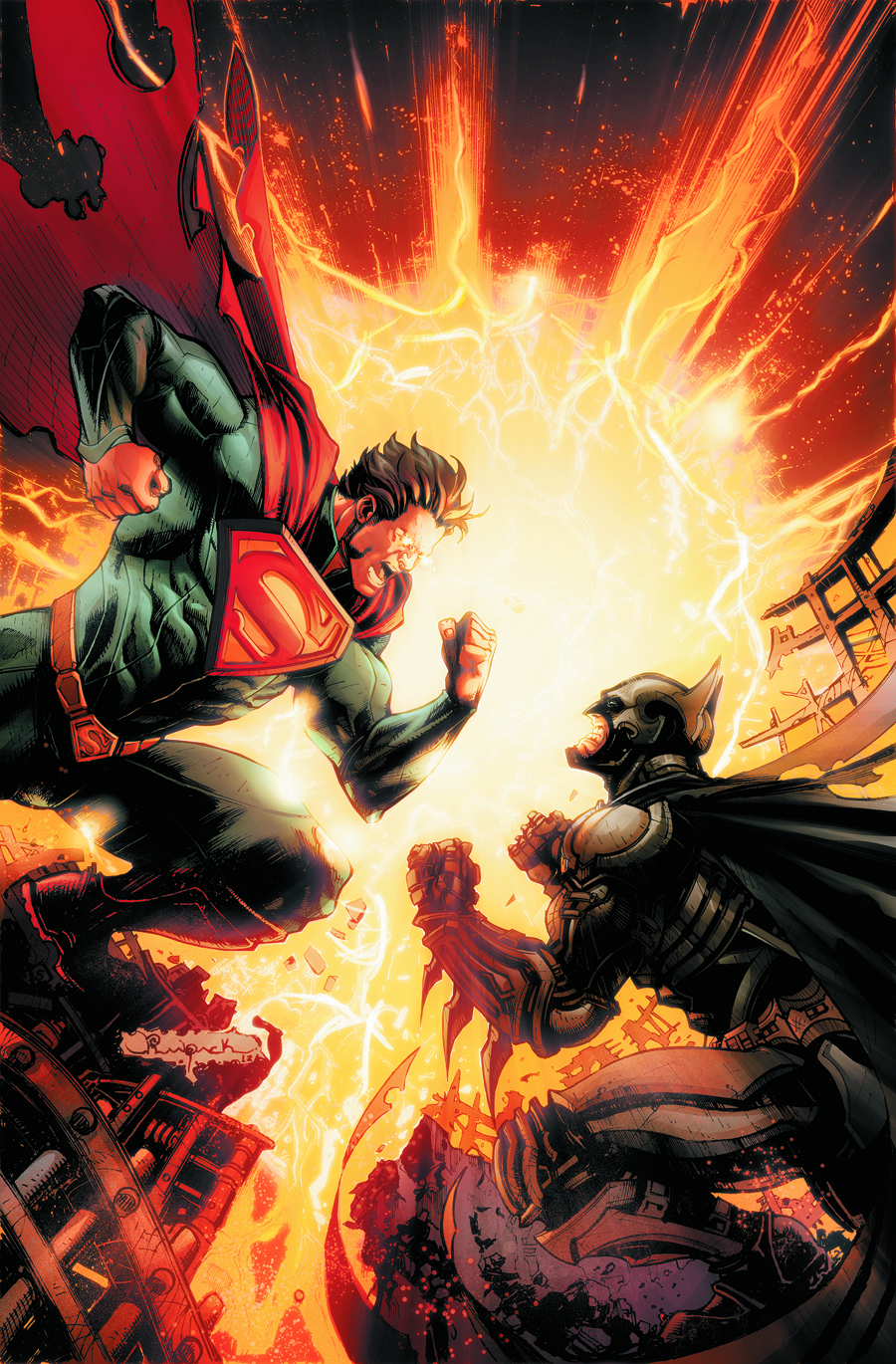
I was actually really torn. I knew I couldn't say no to the opportunity, but I didn't want to do that to characters I've loved for as long as I could remember. I remember calling my mum and complaining.
But I took the gig and I found the least violent way I could think of for Superman to take Lois' life - tricking him into thinking he's protecting her and carrying her into space. I was also adamant that the son of Martha and Jonathan Kent wouldn't become evil overnight. He wouldn't just snap and suddenly be stroking a white cat. It had to be a slow degradation. It had to be him trying to help, but going too far.
It's the same with Batman, he had to try to save his friend. The first year was all about the break-up of the World's Finest friendship.
Nrama: With that in mind… the set-up of Injustice is pretty dark - the good guys fall out with each other, half of them end up taking up pretty fascistic stances - but the series… isn't. Whether it's Harley and Green Arrow, or Guy Gardner and… everyone, really, you didn't just find a place for humor, you made a place pretty aggressively for humor.
As a whole, your Injustice is surprisingly light and upbeat, at least until you inevitably do something horrible to a character I've loved for decades, which leads to the obvious question: Why? Why not just surrender to the darkness, Tom?
Taylor: Because it's boring.
I believe, first and foremost, that I work in the entertainment industry. My job is to entertain. I'm not personally entertained by constantly grimdark, serious, superheroes whose lives are so bad they don't want to get out of bed in the morning. I need humor. I need heart. I don't know anyone who doesn't at least try to be funny in their life. So, characters should be funny.
And I'll let you in on a secret; the pain hurts a lot more if you've made the characters funny and likable.
Nrama: I have a theory about something beyond that, which is that there has to be some element of optimism to superhero stories for you, even ones that have to end in tragedy. I might be projecting, because that's how I feel about the genre, mind you.
Taylor: Of course! Superheroes should inspire us to do more. To be more. Comics should provide escapism.
When every corporate head and politician seems to be motivated by greed and their own interests, I need a world where there are people we can believe in. I need heroes who we can trust in to fight for all of us, who will put people before profits and who will put the world ahead of themselves.
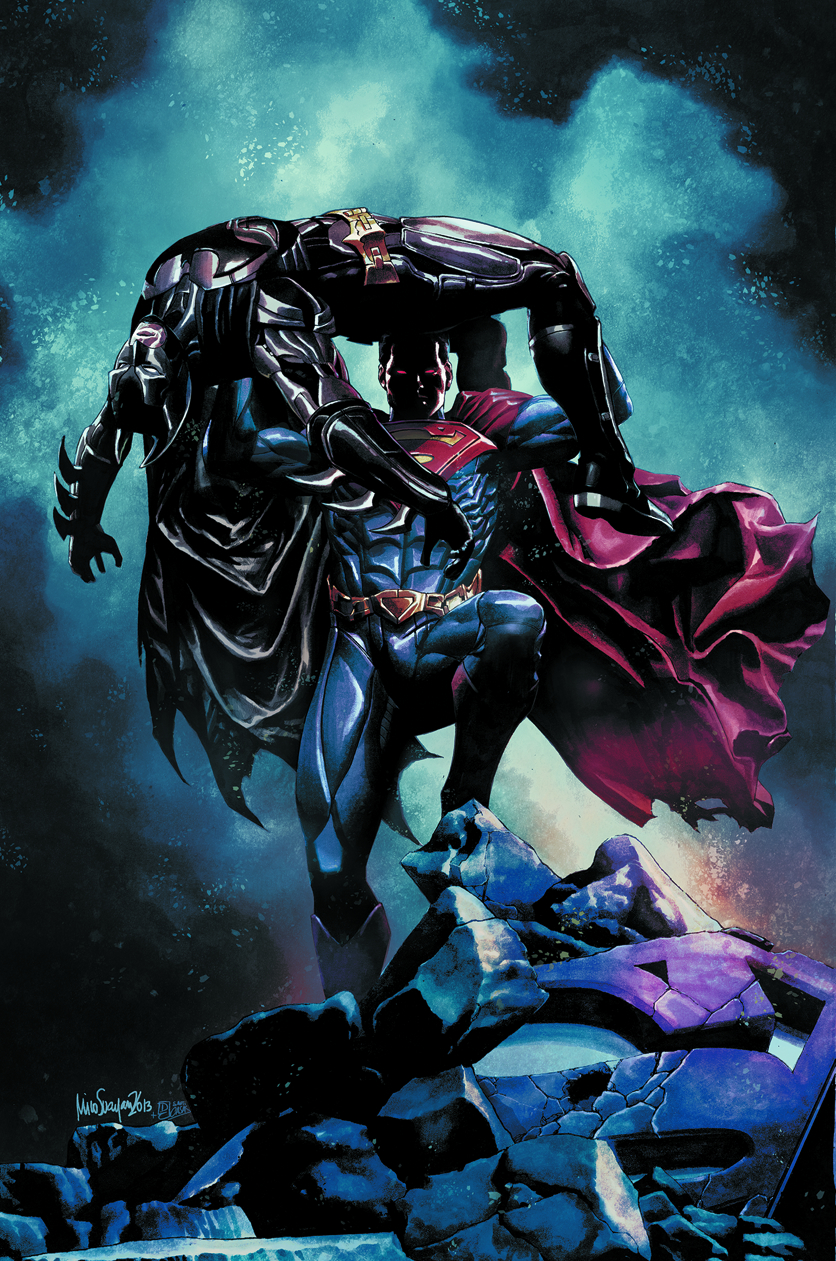
Nrama: The structure of Injustice, the original series, was quite something; each new "year" of stories somehow managed to up the scope of the story from the last, and also bring in more and more elements of the greater DCU - something you continued in Injustice 2, which went to at least a couple of entirely unexpected places.
How much of this came from you, as opposed to editorial, as someone who, I suspect, grew up on the DC books of the immediate post-Crisis era like I did, which characters didn't you get to play with, but really wanted to?
Taylor: Aside from the characters who had to be dead for the continuity of the game, I had a surprising amount of freedom. Once editor Jim Chadwick and I had decided our story was going to be a prequel, there was no pushback at all. Which meant we could just go for it and, as a fan, I could bring in all of my favorite toys to play with… and often break.
Nrama: I've been talking a lot about the writing, but Injustice and Injustice 2 had a stellar art team; you're obviously still working with Bruno Redondo on Suicide Squad, but can you talk a little about the artists you worked with on both series? It felt that you had artists that could do anything you asked them to, from Justice League International-style comedy and expression to big dramatic superpowered set pieces.
Taylor: Bruno Redondo is a great friend. He's the artist I've worked with the most and hopefully always will. And it's because, as well as him being an absolute genius, we have the same storytelling priorities. We speak the exact same comics language. It's all about the acting. Bruno does emotion and heart and tragedy and comedy as well as anyone in the business. You love these characters in Injustice and all the Revolutionaries we've created in Suicide Squad because Bruno gives them a heartbeat.
Dani Sampere and Xermanico are cut from a similar cloth. It was actually Bruno who brought Dani on board for Injustice 2 and worked really closely with him. Dani's work has come along in leaps and bounds since. Check out Suicide Squad #7 and #8 and you'll see what I mean.
Nrama: I have to ask: were you surprised that Injustice was a hit on the scale that it was? It feels as if it massively outperformed expectations, especially considering how earlier DC projects tying in with video games had done.
Taylor: Of course. Everyone was surprised. I loved the story we were telling, and I'm glad people responded to it. But no digital-first comic had performed like that. We often occupied all the top ten spaces, globally. We outsold Batman. We sold over two million in the first year. And the fans have continued to embrace it worldwide.
Bruno, Dani, and I were in France last year and we walked into this absolutely packed auditorium with lights and this giant stage set up… and we were stunned to find it was for us. The hardcovers of Injustice have sold 260,000 copies in France.
What I love to hear is that Injustice was so many people's first comic. There's not much better than knowing we brought people to the greatest storytelling medium on Earth.
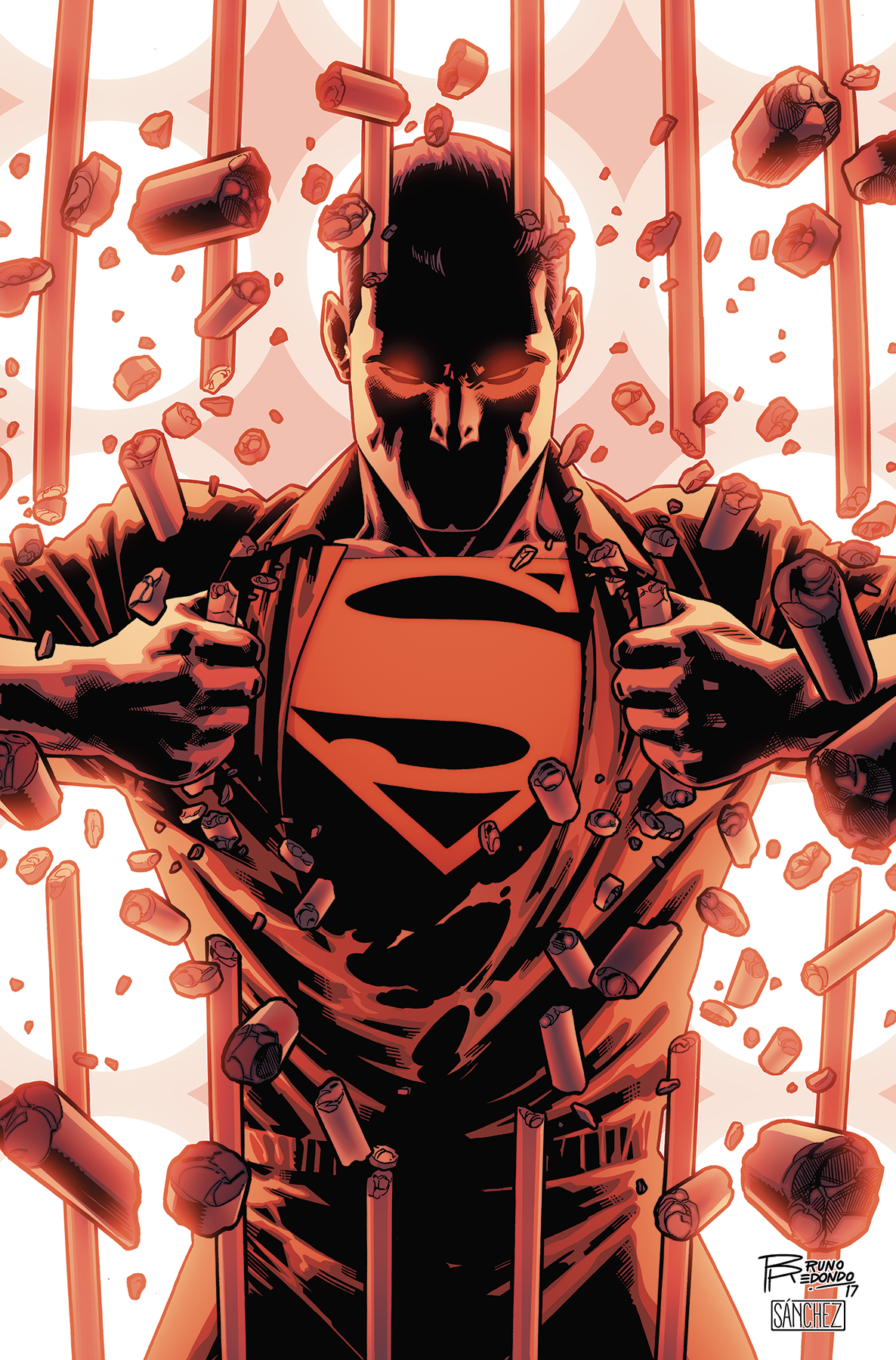
Nrama: In some ways, Injustice gave you a reputation as a writer who can do 'alternate world in calamity' stories really well - something that you're continuing to do in DCeased and now the newly announced Dark Age for Marvel. Is that a surprise?
There's an element of you getting to do big event storylines that touch on every area of a fictional universe, but keeping it all under your own control in these series - is that the appeal of doing these kinds of stories that keeps bringing you back?
Taylor: Yeah. I'd been asking DC and Marvel for exactly this over the years - for that freedom that Injustice provided. To be able to tell Elseworlds and What Ifs. It's the freedom we're getting on Seven Secrets at Boom! as well. And, with my old friend Ben Abernathy coming back to editing at DC, he reached out to me about DCeased.
Being given a whole universe where the continuity is our own means we can tell one story where anything can happen, where the stakes can be the highest, where characters stay dead and, if a mistake is made, the only person you can blame is yourself. Still kicking myself I killed the Birds of Prey in a single page turn...


